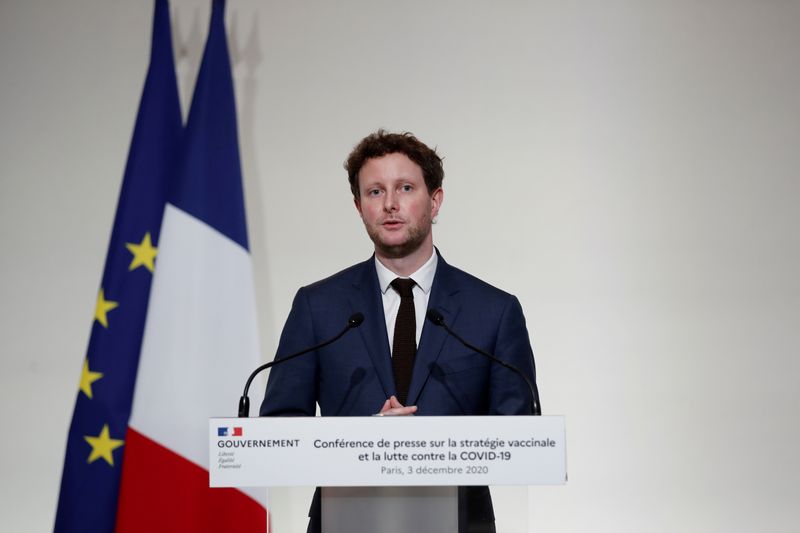By John Irish
DUBLIN (Reuters) -France said on Thursday that the European Union could not accept any unilateral move by Britain that threatened the integrity of the single market via the Irish border, calling it dangerous to question the Brexit deal’s Northern Ireland protocol.
After the United Kingdom left the European Union’s orbit at the end of last year, checks were introduced on some goods moving from mainland Britain to Northern Ireland, which has a land border with EU member Ireland.
British Prime Minister Boris Johnson, who had promised there would be unfettered trade between Northern Ireland and the rest of the United Kingdom, unilaterally extended a grace period on certain checks to minimise supply disruption, a move Brussels has said breached the Brexit divorce deal.
“This protocol must be wholly respected. This is what we expect from the United Kingdom,” Clement Beaune, France’s junior minister for European Affairs, said during a trip to Ireland.
“That does not mean there cannot be flexibility and ways of applying the protocol…which reduce (trade) friction. I hope this is only a period of adjustment that we are seeing, and not a broader will to provoke the EU.”
Neither side should play with peace in Northern Ireland, Beaune said.
“It couldn’t come to mind that British dignity and honour would allow it to go back on principles that it voted for,” Foreign Minister Jean-Yves Le Drian told reporters. “It would be stupefying and I can’t believe that the statements we’ve heard here or there commit the highest British authorities.”
Preserving the delicate peace without allowing the United Kingdom a back door into the EU’s single market via the Irish border was one of the most difficult issues of nearly four years of tortuous talks on the terms of Britain’s exit from the bloc.
Irish Foreign Minister Simon Coveney said he hoped there would be progress as soon as possible.
“I hope we will be able to find a way through the committees that have been set up to do that to resolve the outstanding issues of the protocol that can avoid unilateral action by the British government which would be a disaster,” he said.
(Reporting by John Irish, Editing by Richard Lough, Kirsten Donovan)

















